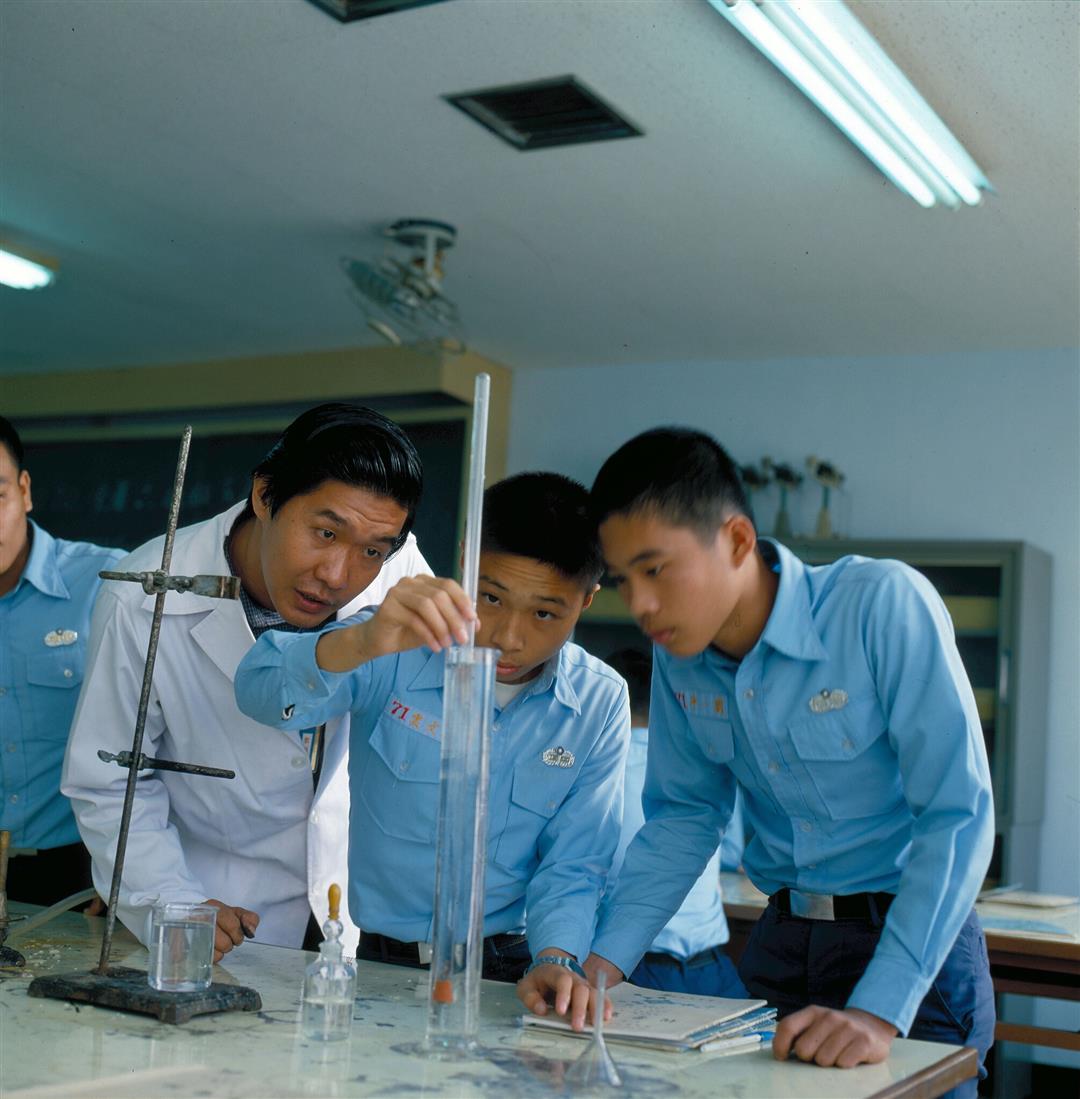Experiment: As the students do not have to take the college entrance examination, they have been selected to take part in experimental courses in science education. First, freshmen are required to take three of the four courses on basic science including physics, chemistry, biology and geophysics. If they decide to major in social science in the second grade, they will have some basic knowledge of natural science.
To bridge the gap between students having different IQs, the school undertook several experiments since it was founded four years ago. In the first year, students were merely divided into classes according to their academic achievements. Teachers soon found, however, that they were having difficulty in meeting the needs of students at different intelligence levels.
In the second year therefore, students were grouped according to the subjects in which they showed the most aptitude. As they all used the same textbooks and took the same examinations whatever their academic standards, the result was still not satisfactory.
Further changes in the third year involved the compilation of new teaching materials and setting different examinations for low-IQ pupils. This proved to be unfair to the more scholastically advanced students, however.
In an attempt to overcome all the shortcomings at once, therefore, it was decided in the fourth year to give more class hours to slow-learning students. This method has enabled teachers to meet the needs of students at all levels. If a student is found to be unsuitable for military officer training, however, he is advised to enter another school.

Students in the chemistry lab.